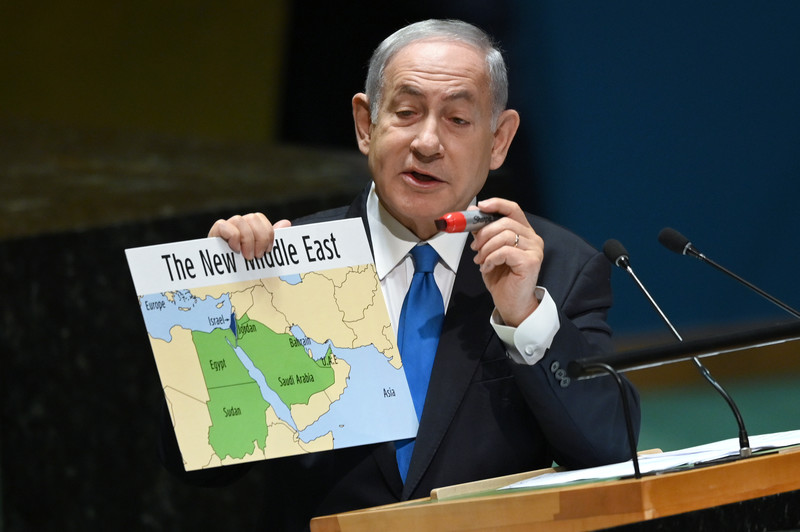Western countries have been waiting for decades for an opportunity to confront the mullahs’ regime in Iran. It seems that Iran’s missile strikes on Israel yesterday may be that long-awaited opportunity. We are likely to see the repercussions of this attack in the coming days.
Israel is certainly aware that Western powers are looking for a chance to clip the wings of the Iranian regime, and has built its calculations on this basis. So far, it appears that Israel has made significant gains through this strategy.
Potential consequences include:
– Escalation of international sanctions against Iran
– Increased military and political support for Israel
– Possible military action against Iranian nuclear facilities
It’s important to follow developments in the coming days to understand the impact of this event on the balance of power in the region and the international stance towards Iran.
Despite limited direct material damage, this event could be a turning point in regional dynamics. It may lead to reshaping regional alliances and changing deterrence strategies. However, it remains important to monitor future developments to assess the full long-term impact.
Based on available information, the impact of the Iranian attack on Israel and Israel’s response on the balance of power in the region and the international position towards Iran can be analyzed as follows:
Change in regional equations:
– Breaking the psychological barrier: The direct Iranian attack on Israel set a historical precedent, as it’s the first time a country has launched a direct attack on Israel from its territory. This may lead to changes in regional equations and perceptions of power.
– Dispersing Israeli power: This escalation may force Israel to face threats on multiple fronts, potentially affecting its military capabilities and focus on Gaza.
Impact on the international position:
– Increased support for Israel: The Iranian attack is likely to increase international sympathy and support for Israel, especially from its Western allies.
– Toughening stance towards Iran: This event may lead to a hardening of the international position towards Iran, with the possibility of new sanctions or stricter diplomatic measures.
New strategic challenges:
– Improving Israeli defenses: Israel will work to enhance its defensive capabilities, especially against air and missile threats.
– Intensifying covert operations: Israel is likely to increase its covert operations inside Iran, including cyber espionage and preventive operations.
It’s now important to read these developments in the context of Netanyahu’s vision for the new Middle East, especially regarding the India-Middle East-Europe Corridor (IMEC). This project represents a major shift in the region:
Strategically, it aims to:
– Create an economic link: Establish a maritime and rail transport network connecting the UAE, Saudi Arabia, and Jordan to Israel’s Haifa port on the Mediterranean.
– Provide an alternative to China’s Belt and Road Initiative: It’s seen as a competitor to China’s growing influence in the region.
– Enhance normalization: It was seen as a means to accelerate the normalization process between Israel and Arab countries, especially Saudi Arabia.
Current challenges include:
– Impact of the war in Gaza: The current conflict has frozen normalization talks and destabilized the region.
– Turkey’s opposition: Turkey has objected to the project, stating that “there can be no corridor without Turkey.”
– Infrastructure challenges: Massive investments are needed to modernize railway networks in the region.
Future prospects for the region include:
– Continued interest: Despite challenges, India and participating countries affirm ongoing interest in the project in the long term.
– Reshaping geopolitics: If implemented, the project could lead to radical changes in regional relations and alliances.
– Economic opportunities: The project could provide a faster and more cost-effective route for trade between India and Europe.
In light of Netanyahu’s vision, IMEC can be seen as part of a broader strategy to reshape the Middle East, enhancing Israel’s position as a regional center. However, the project’s success heavily depends on developments in the current conflict and the ability of concerned parties to overcome political and security differences.
Where does Sudan stand in Netanyahu’s equation for the new Middle East?
According to information from Netanyahu’s speech at the UN, Sudan’s position in his map of the new Middle East can be identified as follows:
Sudan was classified among the “blessed” countries in Netanyahu’s vision for the region. This means Netanyahu considers Sudan as one of the countries cooperating or aligning with Israel’s policies in the region. This classification puts Sudan alongside other countries such as:
– Saudi Arabia
– Egypt
– Jordan
– United Arab Emirates
It’s important to note that this classification reflects the official Israeli perspective and may not necessarily align with Sudan’s official position or the sentiments of the Sudanese people. It’s worth noting that this classification may be linked to recent developments in Sudan-Israel relations, including steps towards normalization that began in 2020. However, Sudan’s internal political situation and regional developments may affect these relations in the future.
Will Sudan accept participation and be part of the roadmap?
Ultimately, Sudan may be open to participation if it sees that the project serves its national interests and contributes to its development and reconstruction, while maintaining its independence and sovereignty.
Sudan’s position and strategic importance in the context of the new regional roadmap can be analyzed as follows:
Sudan’s strategic importance:
– Geographical location: Sudan has a strategic position linking North Africa to its depth, making it an important hub for any regional project.
– Maritime extension: Sudan’s presence on the Red Sea gives it importance in any trade route connecting Asia to Europe through the Middle East.
– Natural resources: Sudan possesses important natural resources that could be attractive for foreign investments.
Factors that may influence Sudan’s decision:
– Need for development: Sudan desperately needs sustainable development and reconstruction after years of conflicts.
– Internal political situation: Current political instability may affect Sudan’s ability to make long-term strategic decisions.
– Regional relations: Sudan’s position on regional issues, especially its relations with Egypt and Ethiopia, may influence its decision.
Opportunities and challenges of participation:
– Development opportunities: Participation in a major regional project could provide tremendous opportunities for development and investment in Sudan.
– Sovereignty challenges: There may be concerns about the project’s impact on national sovereignty.
– Regional balances: Sudan may need to balance its relations with various regional powers.
Conclusion:
Sudan’s acceptance to participate in such a project will depend on several factors, most importantly:
– The extent of economic and developmental benefits offered.
– Political and security guarantees.
– The internal situation and the government’s ability to make strategic decisions.

